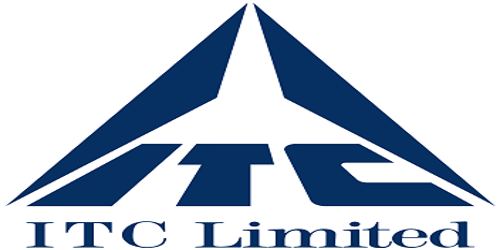Background of AB Bank Limited
AB Bank Limited, the first private sector bank was incorporated in Bangladesh on 31st December 1981 as Arab Bangladesh Bank Limited and started its operation with effect from April 12, 1982.
AB Bank is known as one of leading bank of the country since its commencement 28 years ago. It continues to remain updated with the latest products and services, considering consumer and client perspectives. AB Bank has thus been able to keep their consumer’s and client’s trust while upholding their reliability, across time.
During the last 28 years, AB Bank Limited has opened 77 Branches in different Business Centers of the country, one foreign Branch in Mumbai, India and also established a wholly owned Subsidiary Finance Company in Hong Kong in the name of AB International Finance Limited. To facilitate cross border trade and payment related services, the Bank has correspondent relationship with over 220 international banks of repute across 58 countries of the World.
In spite of adverse market conditions, AB Bank Limited which turned 28 this year, concluded the 2008 financial year with good results. The Bank’s consolidated profit after taxes amounted to Taka 230 cr which is 21% higher than that of 2007. The asset base of AB grew by 32% from 2007 to stand at over Tk 8,400 cr as at the end of 2008.
The Bank showed strong growth in loans and deposits. Deposit of the Bank rose by Tk. 1518 cr ie., 28.45% while the diversified Loan Portfolio grew by over 30% during the year and recorded a Tk 1579 cr increase. Foreign Trade Business handled was Tk 9,898 cr indicating a growth of over 40% in 2008.
The Bank maintained its sound credit rating in 2008 to that of the previous year. The Credit Rating Agency of Bangladesh Limited (CRAB) awarded the Bank an A1 rating in the long term and ST-2 rating in the short Term.
AB Bank believes in modernization. The bank took a conscious decision to rejuvenate its past identity – an identity that the bank carried as Arab Bangladesh Bank Limited for twenty five long years. As a result of this decision, the bank chose to rename itself as AB Bank Limited and the Bangladesh Bank put its affirmative stamp on November 14, 2007.
The Bank decided to change its traditional color and logo to bring about a fresh approach in the financial world; an approach, which like its new logo is based on bonding, and trust. The bank has developed its logo considering the contemporary time. The new logo represents our cultural “Sheetal pati” as it reflects the bonding with its clientele and fulfilling their every need. Thus the new spirit of AB is “Bonding”. The Logo of the bank is primarily “red”, as red represents velocity of speed and purity. Our new logo innovates, bonding of affiliates that generate changes considering its customer demand. AB Bank launched the new Logo on its 25th Anniversary year.
AB Bank commits to nation to take a lead in the Banking sector through not only its strong financial position, but also through innovation of products and services. It also ensures creating higher value for its respected customers and shareholders. The bank has focused to bring services at the doorstep of its customers, and to bring millions into banking channels those who are outside the mainstream banking arena. Innovative products and services were introduced in the field of Small and Medium Enterprise (SME) credit, Women’s Entrepreneur, Consumer Loans, Debit and Credit Cards (Local & International), ATMs, Internet and SMS Banking, Remittance Services, Treasury Products and Services, Structured Finance for Corporate, strengthening and expanding its Islamic Banking activities, Investment Banking, specialized products and services for NRBs, Priority Banking, and Customer Care. The Bank has successfully completed its automation project in mid 2008. It envisages enabling customers to get banking services within the comfort of their homes and offices.
AB Bank has continuously invests into its biggest asset, the human resource to drive forward with its mission “to be the best performing bank in the country.” The bank has introduced Dress Code for its employees. Male employees wear designed ties and females wear Sharee or Salwar Kamiz, all the dresses are consisted with the unique AB Bank logo.
AB is recognized as the people’s choice, catering to the satisfaction of its cliental. Their satisfaction is AB’s success.
Vision and Mission statement
Vision Statement
“To be the trendsetter for innovative banking with excellence & perfection”
Mission Statement
“To be the best performing bank in the country”
Core values
Our compliances:
We consider adherence to national policies and objectives a priority for giving our customers the best financial support with corporate integrity, meaning a fully compliant bank along with involvement in social development.
Our customers:
We give the best priority on our customer demand and through our endless effort we assure the best satisfaction to our customers.
Our shareholders:
We assure the best return to our shareholders’ by commenced performance over a rolling year.
Our team members:
We provide secure, satisfying employment, ensuring the contribution of each individual to the success of ABBL.
Corporate Information of AB Bank Limited
Name of the Company
AB Bank Ltd
Legal Form: A public limited company incorporated on 31st December, 1981 under the Companies Act, 1913 and listed in the Dhaka Stock Exchange Ltd and Chittagong Stock Exchange Ltd.
Commencement of Business
27th February 1982
Registered Office
BCIC Bhaban, 30-31, Dilkusha C/A
Dhaka 1000, Bangladesh.
Tel: +88-02-9560312
Fax: +88-02-9564122, 23
SWIFT: ABBLBDDH
E-mail: info@abbank.com.bd
Web: www.abbank.com.bd
Auditors
S.F. Ahmed & Co.
Chartered Accountants
Tax Consultant
K.M. Hassan & Co.
Chartered Accountants
Legal Retainer
A. Rouf & Associates
Chittagong Regional Office
Spensers Building, 26 Agrabad C/A, Chittagong
Tel: 713381-83, 713385-86(031)
Fax: 713384 (031)
E-mail: agrmg@abbank.com.bd
Sylhet Regional Office
Biswa Road, Shahjalal Uposhohor Point, Sylhet 3100
Tel: (0821) 725042, 815085
Fax: 725042
E-mail: gdntmg@abbank.com.bd
Khulna Regional Office
Mollick Shopping Complex Limited, 99 Khan A Sabur Road, Khulna
Tel: (041) 720311, 723062, 724090
Mobile: 01199-660075
Fax: (041) 720311
E-mail: khlnmg@abbank.com.bd
Rajshahi Regional Office
102-103 Shaheb Bazar, Rajshahi
Tel: 773261, 774283 (0721)
Fax: 773261 (0721)
E-mail: rjshmg@abbank.com.bd
Merchant Banking Wing (MBW)
BCIC Bhaban (7th Floor)
30-31, Dilkusha C/A, Dhaka 1000
Tel: +88-02-9566688
Fax: +88-02-956688
E-mail: mbw@abbank.com.bd
AB Bank Foundation (ABBF)
BCIC Bhaban (7th Floor)
30-31, Dilkusha C/A, Dhaka 1000
Tel: +88-02-9553939
Fax: +88-02-9553773
E-mail: abbf@abbank.com.bd
AB Bank Limited, Islami Banking Branch
82, Kakrail, Ramna, Dhaka
Tel: +88-02-8332235, 37, 38
Fax: +88-02-8332236
E-mail: ibb@abbank.com.bd
Overseas Branch
Mumbai Branch
Liberty Building
41-42, Sir Vithaldas, Thackerse Marg
New Marine Lines, Mumbai 400-020, India
Tel: 2005392-3 (0091)
SWIFT: ABBLINBB, E-mail: mumbai@abbank.com.bd
Subsidiary Company
AB International Finance Ltd
Hongkong
Unit 1201-B, 12/F, Admiralty Centre
Tower One, 18 Harcourt Road, Hongkong
Tel: 2866 8094 (00852)
SWIFT: ABFLNKHH
E-mail: aomrashed@abbank.com.bd
Authorized capital
Tk. 600 crore
Paid up capital:
Tk. 256.43 crore
Number of shareholders:
58,558 (record date- 20.05.2010)
Total manpower:
1952
Number of branches:
78
Number of SME Centers:
10
Total assets:
Tk. 10691.23 crore
Earnings Per Share (EPS):
Tk. 131.13
Net Asset Value per Share:
Tk. 393.35
Market Capitalization:
Tk. 3018 crore
Rating Agency:
Credit Rating Agency of Bangladesh (CRAB)
Board of Directors
- M. Wahidul Haque, Chairman
- Salim Ahmed, Vice Chairman
- Feroz Ahmed, Director
- M. A. Awal,Director
- Shishir Ranjan Bose FCA,Director
- Faheemul Huq,Director
- Syed Afzal Hasan Uddin,Director
- Mishaal Kabir,Director
- Md Mesbahul Hoque,Director
- Md. Anwar Jamil Siddiqui,Director
- Dr. M. Imtiaz Hossain,Director
- Runa Zakia Shahrood Khan,Director
- Bipad Bihary Saha Roy,Director
- Kaiser A. Chowdhury, President & Managing Director
Management Committee
- Kaiser A. Chowdhury, President & Managing Director
- Fazlur Rahman, Additional Managing Director
- Majedur Rahman, Additional Managing Director
- Faruq M Ahmed,Deputy Managing Director
- Shamim Ahmed Chaudhury, Deputy Managing Director
- Badrul H. Khan, Chief Finance Officer
Following members are also in the Management Committee:
• Head of HR & Transformation
• Head of Financial Institutions and Treasury
• Head of Internal Control & Compliance
• Head of Information Technology
• Head of Credit Risk Management
• Head of Credit Administration Management
• Head of Islami Banking Division
• Head of Retail Banking
• Head of SME
• Head of Risk Management Unit
• Head of Corporate & Structured Finance
• Head of Regions
Executive Committee
- Salim Ahmed, Chairman
- M. Wahidul Haque, Member
- Syed Afzal Hasan Uddin, Member
- Md Mesbahul Hoque, Member
- Kaiser A. Chowdhury, Member
Audit Committee
- Shishir Ranjan Bose FCA, Chairman
- M. Wahidul Haque, Member
- Salim Ahmed, Member
- Badrul H. Khan, Company Secretary
Products & ServicesBusiness banking
- Term loan
- Time loan
- Trade finance
- Trust receipt
- Working capital
- Bill discounting
- Letter of Guarantee
- Private equity
Small & Medium Enterprise (SME) loans
- Choto Puji Rin
- Goti
- Proshar
- Digun
- Uddag
- Sathi
- Awparajita
Treasury & Foreign Exchange products
- Money market
- Overnight (call)
- Term
- Repo
- Reverse Repo
- SWAP
- FX Market
- Spot
- Forward
Retail Products
- Personal loan (unsecured)
- Personal loan (secured)
- Home & Office renovation loan
- Education loan
- Auto loan
- Easy loan for executive
- Gold grace
- Credit card
- Debit card
Deposit accounts
- Savings account
- Current account
- Special Notice Deposit
- Fixed Term Deposit
- Foreign Currency account
- NFCD
- RFCD
- School banking
Service Products
- 24 hour ATM access
- Online banking
- Exchange houses
- SWIFT
ABBL Foundation
- Brokerage service
Islami banking
- Deposit products
- Ø Al-Wada Current Deposit
- Ø Mudaraba Term Deposit
- Ø Mudaraba Savings Deposit
- Ø Mudaraba Special Notice Deposit
- Ø Mudaraba Pension Deposit Scheme
- Ø Mudaraba Quarterly Profit Paying Scheme
- Ø Mudaraba Probable Millionaire Scheme
- Ø Mudaraba Hajj Deposit Scheme
- Investment Products
- Ø Bai-Murabaha
- Ø Bai-Muajjal
- Ø Hire-Purchase under Shirkatul Melk (HPSM)
- Ø Murabaha Post-Import (MPI)
- Ø Quard against MTDR
Objectives and Goals:
ABBL’s main objective is to maximize profit through customer satisfaction, which very much reflexes the idea of marketing concept. Its objective is to remain objective. The bank will support al constructive reforms that are in the national interest and encourage more competition and choice for the people. besides investment in trade and commerce, the bank will participate in the socio economic development of the priority sectors like agriculture, industry, housing and self employment in the country. It also wants to ensure high return on investment, sound growth and profit and service with different service products.
Timeline of ABBL
| December 31, 1981 | Certificate of Incorporation |
| February 5, 1982 | First meeting of the Board of Directors |
| February 27, 1982 | Commencement of Business |
| April 12, 1982 | Opening of Branch (Kawran Bazar) |
| December 28, 1983 | Listed in Dhaka Stock Exchange (DSE) |
| May 5, 1984 | Publication of Prospectus for IPO |
| June 25, 1984 | Subscription for share status |
| November, 1995 | Opening of AB International Finance Ltd at Hong Kong |
| January, 1996 | Listed in Chittagong Stock Exchange (CSE) |
| April 6, 1996 | First foreign branch at Mumbai, India |
| November 2, 2002 | Launching of ATM |
| November 3, 2002 | Incorporation of AB Bank Foundation |
| December 23, 2004 | Launching of VISA cards |
| December 23, 2004 | Opening of the Islamic banking branch |
| November 14, 2007 | Changed its name to AB Bank Limited (ABBL) |
| January 1, 2008 | Launched AB Bank’s new logo |
| April 12, 2010 | Launching SMS banking service |
ABBL- at a glance’2008
December 31 | Taka in Millions | ||
2008 | 2007 | % change | |
| Gross interest income | 7366.85 | 5269.90 | 39.79 |
| Net interest income | 2030.69 | 1439.28 | 41.09 |
| Operating profit (PBP & T) | 4298.39 | 3325.29 | 29.26 |
| Net operating profit (PBP) | 3600.62 | 2817.99 | 27.77 |
| Profit after tax | 2300.62 | 1903.49 | 20.86 |
| Deposits | 68560.47 | 53375.35 | 28.45 |
| Loans and advances | 56708.77 | 40915.35 | 38.60 |
| Totals assets | 84053.61 | 63549.86 | 32.26 |
| Shareholders’ equity | 6722.51 | 4511.59 | 49.01 |
| NIM% | 2.75 | 2.58 | |
| Non interest income to operating income (%) | 66.98 | 69.09 | |
| Cost income ratio | 62.57 | 28.59 | |
| Return on equity (ROE) % | 40.96 | 42.19 | |
| Return on assets (ROA) % | 3.12 | 3.41 | |
| Advance deposit ratio (%) | 82.71 | 76.66 | |
| Capital adequacy ratio | 12.84 | 10.75 | |
| NPL as % of advances | 2.99 | 4.31 | |
| Earnings per share (tk.) | 103.18 | 85.37 | |
ABBL’s position in CAMEL Ratings-2008
Analyzing the overall operational activities of all commercial and specialized banks, central bank, the regularity authority of country’s banking sector has ranked 6 “A-Class”, 27 “B-Class”, 8 “C-Class”, 5 “D-Class”, and 2 “E-Class” banks by the end of 2008 on the basis of performance of 2007. It is a rating based on a bank’s capital, asset, management, earning, liquidity, and sensitivity (CAMELS). The serial is made on as local banks first, then foreign banks:
Strong or A-Class banks | Satisfactory or B-Class banks | Marginal or D-Class banks |
| Prime bank ltd. | Standard bank limited | Sonali bank ltd. |
| Shahjalal Islami bank ltd. | Exim bank limited | Janata bank ltd. |
| Commercial bank of Ceylon | Merchantile bank limited | Bangladesh shilpa bank |
| State bank of india | NCC bank limited | Bangladesh krishi bank |
| Standard chartered bank | BASIC bank limited | Rajshahi krishi unnayan bank |
| Citi bank N.A | Pubali bank limited | |
| Southeast bank | ||
Fair or C-Class banks | Mutual trust bank limited | Unsatisfactory or E-Class banks |
| First security bank | Dutch- bangla bank | Bangladesh commerce bank |
| IFIC bank | Premier bank | Oriental bank ltd. |
| AB Bank Limited | The trust bank | |
| United commercial bank | Bank asia | |
| Al-arafah Islami bank | Jamuna bank | |
| Bangladesh shilpa rin sangstha | BRAC bank | |
| Agrani bank ltd. | One bank | |
| Rupali bank ltd. | Dhaka bank | |
| Eastern bank | ||
| Islami bank Bangladesh ltd. | ||
| Uttara bank | ||
| National bank | ||
| The city bank | ||
| Social bank investment | ||
| Habib bank | ||
| National bank of Pakistan | ||
| Bank Alfalah | ||
| Woori bank | ||
| HSBC |
Strategic priorities of ABBL in 2009
Amid the backdrop of regulatory and economic situation of 2009, bank set the strategic priorities in pursuit of its own business goals:
- Maximizing diverse business platform reach.
- Reap benefit with expansion of corporate business base through “nurturing” of existing clients while propagating the growth strategy.
- Diversification of business into SME, and retail while aligning with regulatory priorities.
- Re-emphasizing on service delivery.
- Aligning operational procedures, information systems towards business goal achievement and service delivery.
- Maintaining adequate Capital to support growth and also to remain compliant.
- Development of risk culture and also impart corporate governance with a view to bring professionalism, transparency and accountability.
- Enhance AB’s image as a corporate citizen through compliance and focus on value driven CSR.
- Ensuring Shareholders’ Value creation.
ABBL’s Corporate Social Responsibilities
In recent times, CSR is receiving increasing attention in the business world, government policies, industry events, advertising space, and other arenas in these parts of the world. Although the concept of CSR may have been formally introduced through to the financial sector of Bangladesh in 2008, chiefly by Bangladesh bank however, in similar approach, the local banking community has been involved in benevolent activities. AB, which has remain a responsible member of the society seems its journey that begun 28 years back, has indeed duly played its societal role of business. AB, however, feeling the need to carry out its social responsibilities in a more organized way, formed Arab Bangladesh Bank Foundation (ABBF) in the year 2003, which eventually became the vehicle for specific program oriented CSR activities of the bank.
AB conducts it CSR in 2 ways- policy driven and through direct participation in specific programs. However, AB intends to adopt CSR practices, more in the formal and structured manner in light of the Bangladesh bank guidelines for mainstreaming CSR practices in the financial sector. Future efforts of the bank in respect of CSR will include more involvement of its stakeholders in terms of their expectations and needs in order to incorporate more responsible business practices in all of bank’s functions and operations with a goal to fulfill social, economic, environmental, and ethical responsibilities of the bank.
Total involvement for CSR activities stood at tk. 1.77 crore at the end of the year 2009. AB channelized this CSR outlay in diverse areas judging from need and importance it attaches to the bank’s perspectives.
ABBL believes that CSR is first and foremost a commitment to contribute to the society for improving the quality of lives of its people, particularly for that segment of the people who are under privileged and less fortunate in terms of basic needs such as food, health, education, housing etc and also alongside to remain a sincere benefactor of the country’s rich heritage of arts, culture and sports. Besides addressing the basic social needs of the country, AB also believes that CSR can be a genuine platform to address growing environmental concerns, more even when Bangladesh is likely to be the most affected country in the world due to climate change caused from the irresponsible and unrestricted carbon emissions by the western developed nations, a dreadful fact acknowledged by the world leaders in the Copenhagen Climate Summit held in December 2009.
AB has always tried to respond to the changing needs of the society and stood besides the affected one’ sin times of crisis of the world, be it a natural disaster or tragedies taking place through immortal act of man. In the past, ABBF participated in disaster relief operations for the landslide victims in Chittagong, SIDR affected people of the coastal areas and for the flood affected people across the country. Bank also ran a media campaign for SIDR Rehabilitation Program at that time which later won the “Best TVC Jury Award” from Bangladesh Journalist Association. ABBF donated a substantial amount to Bangladesh Organization for Disabled Advancement (BODA) for making the disabled blinds self-reliant and skilled through a special training called “Applied ICT”. AB also made donations to organizations like “Wahidul Haque Karmo Parishod” and to “Monir Smriti Sangsad”. AB’s CSR activities also included contribution of the treatment of prominent cultural artist, donation for procurement of training, room equipment for the DSE training academy, etc besides regular sponsoring in different publications in the form of advertisement which are not widely circulated but regarded as sincere efforts for the benefit of the society is also viewed by the bank as a part of its CSR activity. The bank also ran and awareness campaign in a private radio station for creating awareness among the general public about the bad impact of money laundering in local economy. The awareness campaign was a unique idea undertaken by AB that received acclaimed, had a daily broadcast for 6 months as a stretch on “Radio Today”. Recently, ABBL has awarded “International Quality Summit Award-2010” in Platinum Category and “Certificate of Merit” for best published accounts and reports 2008 in the 9th ICAB National Awards for their great contribution in banking sector and economy of Bangladesh.
Some CSR activities of ABBL are given in the followings:
- Standing beside the families affected by BDR tragedy.
- Warm clothes/blanket distribution to the affected underprivileged and destitute people.
- Donation to Bangladesh Organization for Disabled Advancement (BODA).
- Support to Cancer Care Center.
- Caring for the Environment.
- 2nd AB Bank- IUT national ICT festival 2009.
- Patronization of sports (2nd AB Bank Cup Golf Tournament, ABBL Summer Cup Golf Tournament, ABBL Siraj Smriti Cricket Tournament)
- Health and Safety of employees.
- Other sponsored events (National Fish Week 2009, 18th National Vaccination Day, ADHUNIK-Amra Dhumpan Kori Na, Guni Lekhok Award Giving Ceremony, National Arts Festival/Exhibition, Bangla Academy Boi Mela 2009)
Business Continuity Plan (BCP)
Business continuity plan is the creation and validation of the practiced logistical plan for how an organization will recover and restore partially or completely from the interested critical (urgent) functions within a predetermined time after a disaster or extended disruption.
Scope:
BCP is intended for use by the Staff of Head Office Division and Departments and Branches of ABBL.
The plan provides a framework for business continuity in the event of any major incident taking place, causing serious disruption to the Bank’s premises. The plan has been formulated to serve in the following eventualities:
- Loss of or loss access to, critical buildings (including utility failure).
- Non-availability of personnel.
- Loss of systems or services (critical e-commerce failure).
Objectives:
- To ensure that the bank’s business activities can be carried out at home or from some other location.
- Provide alternative arrangement when working at home is not practical after a length of time.
Key features:
- Documents design for each departments of head office and branches with action plan.
- Immediate actions during office hours and outside office hours.
- Plan activation procedures.
- One day plan.
- Longer recovery plan.
- Recovery site details.
- Alternative processing for branch business activities.
- Key resources allocation plan.
- Emergency resources (office, computer and special equipment).
- Archiving sensitive information.
- Emergency information lines.
- Stand down and documentation.
SWOT Analysis of ABBL
| Strengths | Weaknesses | Opportunities | Threats |
| Sound profitability and growth with internal capital generation. | High concentration on fixed deposit: high cost. | Scope of market penetration through diversified product. | Increased competition for common market share. |
| Large number branches including rural areas. | Poorly diversified portfolio. | Opportunity for launching new products relating to deposit and credit and also SME Banking. | Market pressure for lowering of lending rate. |
| Strong CAMEL ratings by Bangladesh Bank. | Centralized decision making. | Scope of expansion through increase in number of branches. | High intensity of rivalry in the industry. |
| Strong and experienced top level management. | Lack of full scale automation. | Providing complete online banking. | Unstable or changing government rules and regulations. |
| Consistent capital growth of the bank since its inception. | ATM operation not widespread like DBBL and SCB and other strong rivals. | The initiative of expanding its ATM & POS through Euronet. | Political instability and related issues. |
| Offering highest interest rate on deposit. | Inefficient real time on line banking. | Meeting Basel II requirements. | |
| Low concentration on SME & Consumer Credit due to weak CRM. |
















